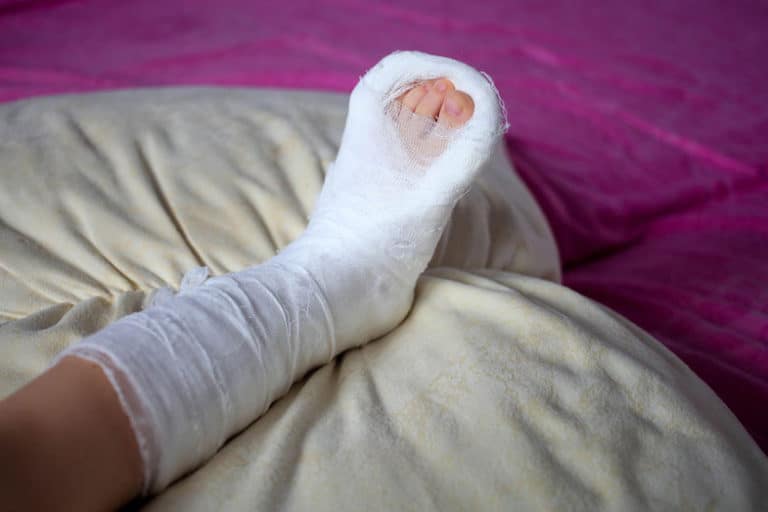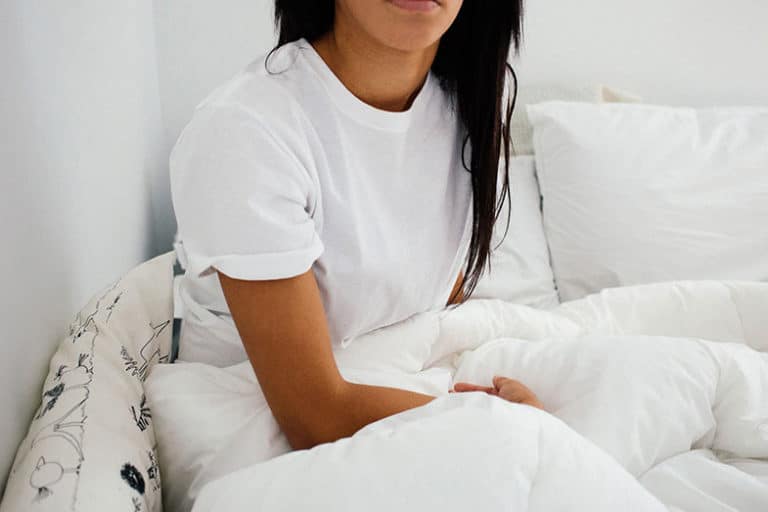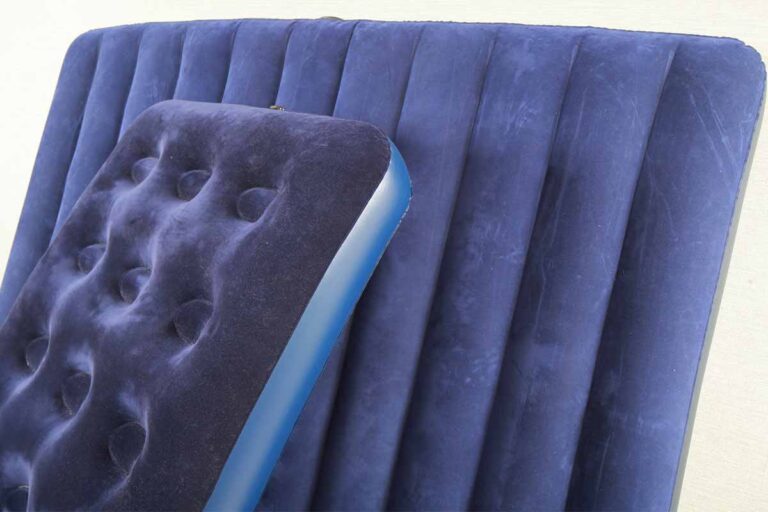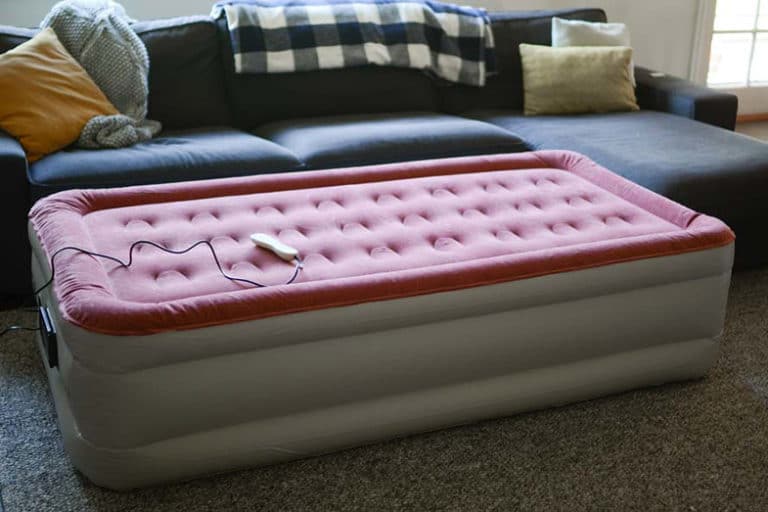How to Sleep 8 Hours in 4 Hours (Complete Guide)
Disclosure: We may get commissions for purchases made through links in this post.
Have you ever found yourself thinking, “So many things to do and so little time,” especially when you have a looming deadline that you’re so desperately trying to beat? If so, you’ve probably had to sacrifice some sleep. However, if you know about the harmful effects of sleep deprivation, you’d certainly want to learn how to sleep 8 hours in 4 hours.
That’s exactly what you’re going to find out in this blog post. First, the article explains the importance of sleep, the two essential phases of the sleep cycle, how much sleep you need, and what makes it possible for you to get the full benefit of sleep in half the time.
Then you will learn how to sleep 8 hours in 4 hours! Here’s a quick rundown of the tips you can follow to make it possible:
- Put your gadget away at least 2 hours before bedtime.
- Read a book.
- Sleep in a dark room.
- Exercise regularly.
- Try Yoga Nidra.
This article also tells you the things you need to avoid so you can sleep soundly. Last but not least, it explores polyphasic sleep, which has become popular in recent years, especially among Silicon Valley professionals.
Ready to dive in? Let’s first examine the importance of sleep.

Why Sleep is Important
Sleep is critical for both your physical and mental health. It heals, repairs, and recharges your body. Getting enough sleep strengthens your immune system and plays an essential role in the healthy regulation of appetite. It’s vital for your brain function and mood regulation. Sleep also facilitates learning and memory consolidation.
Conversely, the lack of sleep has been associated with health problems like depression, obesity, diabetes, kidney disease, heart disease, high blood pressure, and stroke.
Non-REM and REM Sleep
The sleep cycle has two phases. The first, Non-REM sleep, is crucial for repairing your body tissues and strengthening your immune system. The next phase is REM sleep, which is important for brain functions such as learning, memory retention, mood regulation, and brain development. It’s characterized by the fluttering of the eyes and the eyelids, hence the name. (REM stands for rapid eye movement.)
You need to go through both phases to get the full benefit of sleep.

How Many Hours of Sleep Do You Really Need?
The American Academy of Sleep Medicine advises 7 to 8 hours of sleep daily for healthy adults.
However, the National Sleep Foundation (NSF) issued new recommendations for sleep duration per age group. The NSF convened experts from sleep, anatomy, physiology, and other disciplines to come up with the latest recommendations, which are summarized below:
| Age Group | Previous Recommendations | New Recommendations |
| Newborns (0-3 months) | 12-18 hours | 14-17 hours |
| Infants (4-11 months) | 14-15 hours | 12-15 hours |
| Toddlers (1-2 years) | 12-14 hours | 11-14 hours |
| Preschoolers (3-5) | 11-13 hours | 10-13 hours |
| School age children (6-13) | 10-11 hours | 9-11 hours |
| Teenagers (14-17) | 8.5-9.5 hours | 8-10 hours |
| Younger adults (18-25) | (new age category) | 7-9 hours |
| Adults (26-64) | 7-9 hours | 7-9 hours (no change) |
| Older adults (65+) | (new age category) | 7-8 hours |
Would napping compensate for lost sleep?
A nap is a short and light sleep. Napping may boost your energy and alertness temporarily, but it doesn’t give you the full benefits of a deep slumber. Thus, a nap isn’t a substitute for a good night’s sleep.
So Why Bother?
If you need at least 7 to 8 hours of sleep daily, why should you learnhow to get 8 hours of sleep in 4 hours.
Well, the time you spend sleeping doesn’t necessarily equate to the quality of sleep you get. You can get 8 hours of sleep, but if you keep tossing and turning throughout the night, you’ll feel drowsy when you wake up in the morning. On the other hand, it’s possible to sleep for only four hours and feel refreshed when you wake up.
Getting 8 hours of sleep in 4 hours boils down to the quality of sleep you get.
High-Quality Sleep: How to Tell Whether You Slept Well
According to the National Sleep Foundation, you’ve had some high quality sleep if you:
- Fell asleep within 30 minutes;
- Woke up no more than once per night;
- Stayed awake for no more than 20 minutes before going back to sleep
- Slept at least 85 percent of the time you spent in bed
Having slept well means that you are well-rested, and your body has had the chance to repair and restore itself.
You can use a sleep tracker to monitor your quality of sleep. The Fitbit Versa 2 Health and Fitness Smartwatch (view on Amazon) has a built-in sleep tracker that monitors your heart rate, time asleep, and restlessness–information that it uses to come up with a sleep score. This score helps you understand your sleep quality every night. It also tracks your time in light, deep, and REM sleep stages.
How to Sleep 8 Hours in 4 Hours
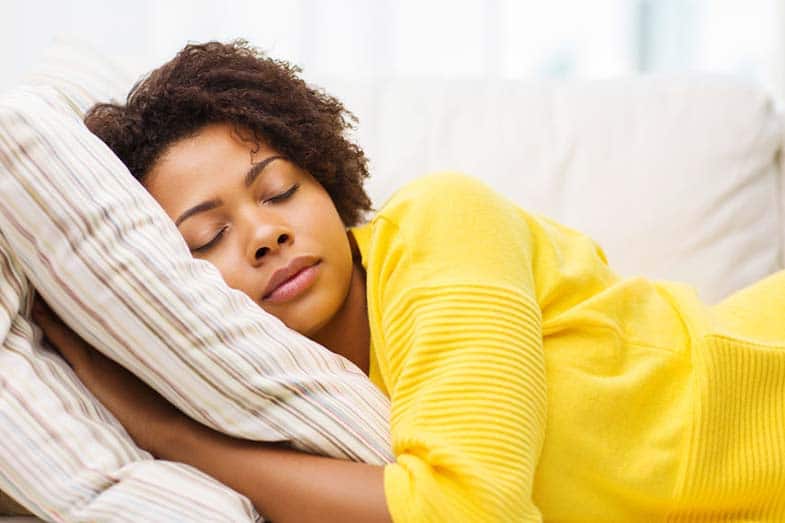
Before we get to an essential part of this article, here is a necessary thing to keep in mind. While it’s possible to get 8 hours of sleep in 4 hours, it’s still best to follow the recommended sleep duration for your age, if you can help it.
Adults, especially the elderly, usually find it easier to get by with only 4 hours of sleep than a teenager or infant. Your ability to sleep 8 hours in 4 hours largely depends on your age and lifestyle.
That said, here are some tips on how to improve your sleep quality, so you can get 8 hours’ worth of restorative sleep in just 4 hours:
Tips:
- Put your gadget away at least 2 hours before bedtime. The blue light from the screen of your smartphone or tablet blocks melatonin, the hormone that makes you tired and ready to sleep.
- Read a book. Reading a good old-fashioned book made of ink and paper can help you destress and relax. According to some researchers at the University of Sussex, reading for just 6 minutes a day reduces stress levels by 68 percent.
- Sleep in a dark room. When it gets dark, your pineal gland starts releasing melatonin, which sends a signal to the brain that it’s time to sleep. So turn the lights off! If you sleep during the day or need to sleep until mid to late morning, use heavy or dark curtains to keep out the sunlight. Or you can use a sleep mask.
- Exercise regularly. When you exercise, you use up your body’s energy stocks for the day, making you tired and ready for bed. But don’t do it just before bedtime! The adrenaline that your body releases during a workout can keep you awake. Instead, do your exercises 3 to 4 hours before you sleep.
- Try Yoga Nidra. It’s a guided meditation practice that you can do while lying on a mat in a dark room. You get into a “psychic sleep” in which your mind stays awake while your body slumbers. Practitioners claim that a 30-minute session is worth two hours of sleep.
For obvious reasons, a comfortable bed is indispensable if you’re trying to get some restful sleep. Investing in a good mattress like the Linenspa 8 Inch Memory Foam and Innerspring Hybrid Mattress (view on Amazon) can truly pay off. This mattress combines hypoallergenic memory foam with an innerspring mattress for the right balance of firmness and comfort.
Some No-no’s
There are things you need to avoid if you want to get some high quality sleep. The first two might be challenging to give up for some people, but keep in mind that these no-nos are non-negotiable:
- Caffeine and nicotine. Steer clear of these stimulants, especially if you have trouble falling asleep.
- Alcohol. Many people think it’s a good idea to have a little drink before bedtime. You can’t blame them–having a glass of wine is relaxing. But the bad news is, alcohol tends to disrupt your sleep cycle. Studies show that it suppresses REM sleep, which is essential for maintaining optimum brain function.
- Heavy meals before bedtime. A substantial meal can make you sleepy, but the effect is temporary. It requires prolonged digestion, which prevents you from sleeping well. Your evening meal should be 500 calories or less. Avoid spicy foods since they can cause heartburn during the night.
- Too much liquid before hitting the sack. Drinking too much will cause you to go to the bathroom all too frequently when you should be sleeping.
What is Polyphasic Sleep?
Polyphasic sleep is the practice of sleeping two or more times within a 24-hour period. People who follow a polyphasic sleep cycle usually want to get more out of their day. Intelligent minds such as Leonardo Da Vinci and Nikola Tesla were said to be polyphasic sleepers and followed the Uberman sleep cycle.
There are several types of polyphasic sleep according to schedule, including:
- Uberman: Six 30-minute naps throughout the day (amounting to 3 hours of sleep daily).
- Everyman: 3 hours of continuous sleep plus three 20-minute naps throughout the day.
- Dymaxion: 30-minute naps every 6 hours (amounting to 2 hours of sleep daily).
But should you try it?
Although many people swear by this practice, medical professionals advise against polyphasic sleep. The director of UCLA’s Sleep Disorders Center, Dr. Alon Avidan, once noted in an interview with Time magazine that individuals who sleep in a fragmented fashion end up sleeping less overall, which is problematic for health. These negative health consequences include memory problems, cognitive impairment, and a higher risk of diabetes and obesity.
Avidan went on to explain that “Sleep is not like a bank account. You can’t sleep for one hour, then two hours, and combine it with another four hours and say it’s seven hours.”
Having a restful, continuous sleep, even just for four hours, is still better than practicing polyphasic sleep.
Conclusion – How to Sleep 8 Hours in 4 Hours
Sleep is vital to your general health and well-being. To get the max benefit of sleep, you need to go through both the Non-REM and REM sleep cycles. The recommended number of hours for healthy adults is 7 to 8. Learning how to get 8 hours of sleep in 4 hours is a matter of knowing how to get some high-quality sleep, which you can do if you follow the tips you’ve just read in this article. You can try polyphasic sleep, but medical professionals warn against it. It’s always best to learn how to sleep well.

